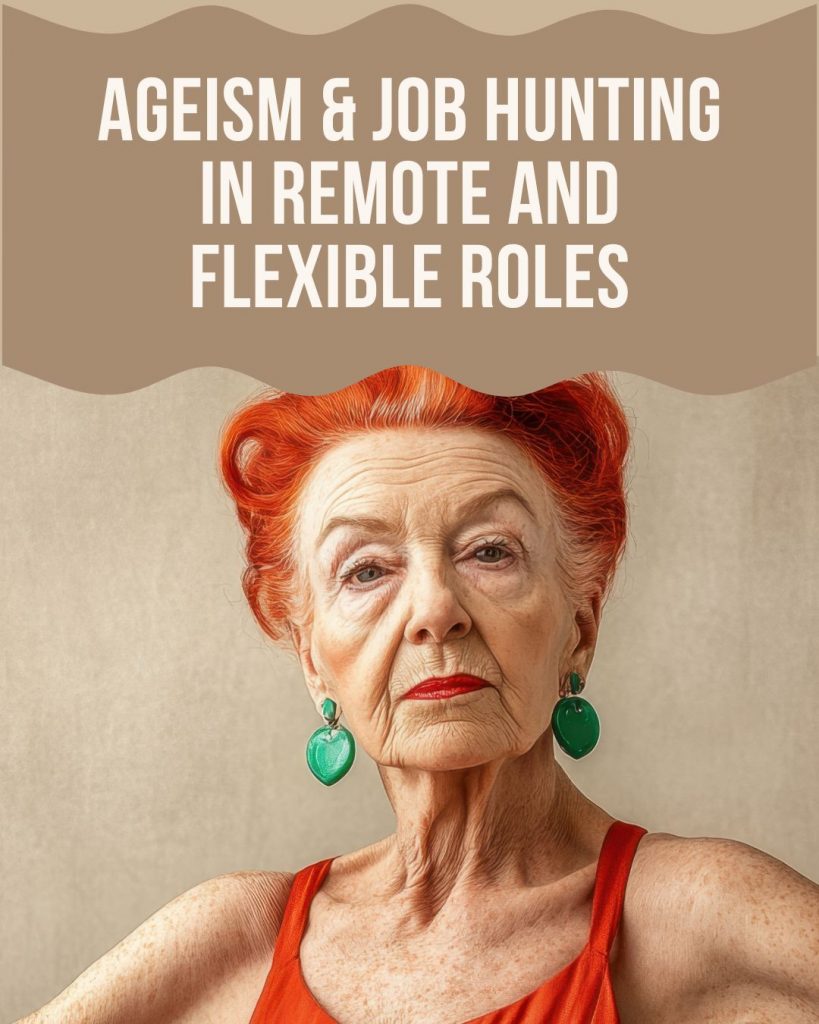
Ageism and Job Hunting in Remote and Flexible Roles
Some of the content on our site may contain affiliate links. Clicking may earn a small commission, at no extra cost to you. Thank you for being supportive! Please see our Disclaimer for further information.
Job hunting is never easy, but for many people over 40 or 50, the search for work-from-home or hybrid roles comes with an extra hurdle: ageism. Even though discrimination based on age is unlawful in the UK under the Equality Act 2010, biases often slip quietly into recruitment.
How ageism shows up in remote job hunting
Ageism isn’t always obvious. In remote and hybrid roles, it often takes more subtle forms:
- Job adverts that ask for “digital natives” or stress “fast-moving, young teams.”
- Application forms that push for graduation years or full career history.
- Interviews that include questions about long-term plans or whether you’ll adapt to new platforms and tools.
- Assumptions that older workers are slower with tech, won’t fit into virtual teams, or will take more sick leave.
The myth of illness and absence
A common stereotype is that older employees take more time off sick. In reality, absence rates don’t automatically rise with age. Research shows that older workers often take fewer short-term sick days than younger staff. While health issues can affect anyone, age itself isn’t a predictor of reliability.
Why remote employers benefit from age diversity
Flexible and remote teams thrive on a mix of perspectives. Older employees often bring experience, steady problem-solving skills, and reliability. Younger colleagues may bring fresh approaches and new ideas. Together, they make businesses stronger and more adaptable.
Practical steps for older job seekers
You can’t change bias overnight, but you can highlight your strengths and challenge assumptions:
- Focus on skills, not dates. Tailor your CV to emphasise achievements relevant to the role.
- Showcase digital confidence. Highlight your use of remote tools like Zoom, Slack, or project management software.
- Network smartly. Referrals and contacts can help bypass automated filters.
- Tackle the “overqualified” label. If you bring more experience than required, explain why the role genuinely appeals to you.
- Know your rights. Age discrimination is unlawful. If you see adverts or practices that cross the line, advice from ACAS or a solicitor can help.
The responsibility of employers
Employers hiring for flexible roles should:
- Use neutral, inclusive job descriptions.
- Train interviewers to recognise and avoid age bias.
- Build remote teams that value experience alongside fresh perspectives.
Final thoughts
Work from home and flexible roles should open doors to more people, not fewer. Yet stereotypes around age still make it harder for some candidates to get a fair chance. By staying confident in your skills, keeping up with technology, and knowing your rights, you can push back against bias. For employers, the message is simple: talent has no age limit.
Pin Me!
